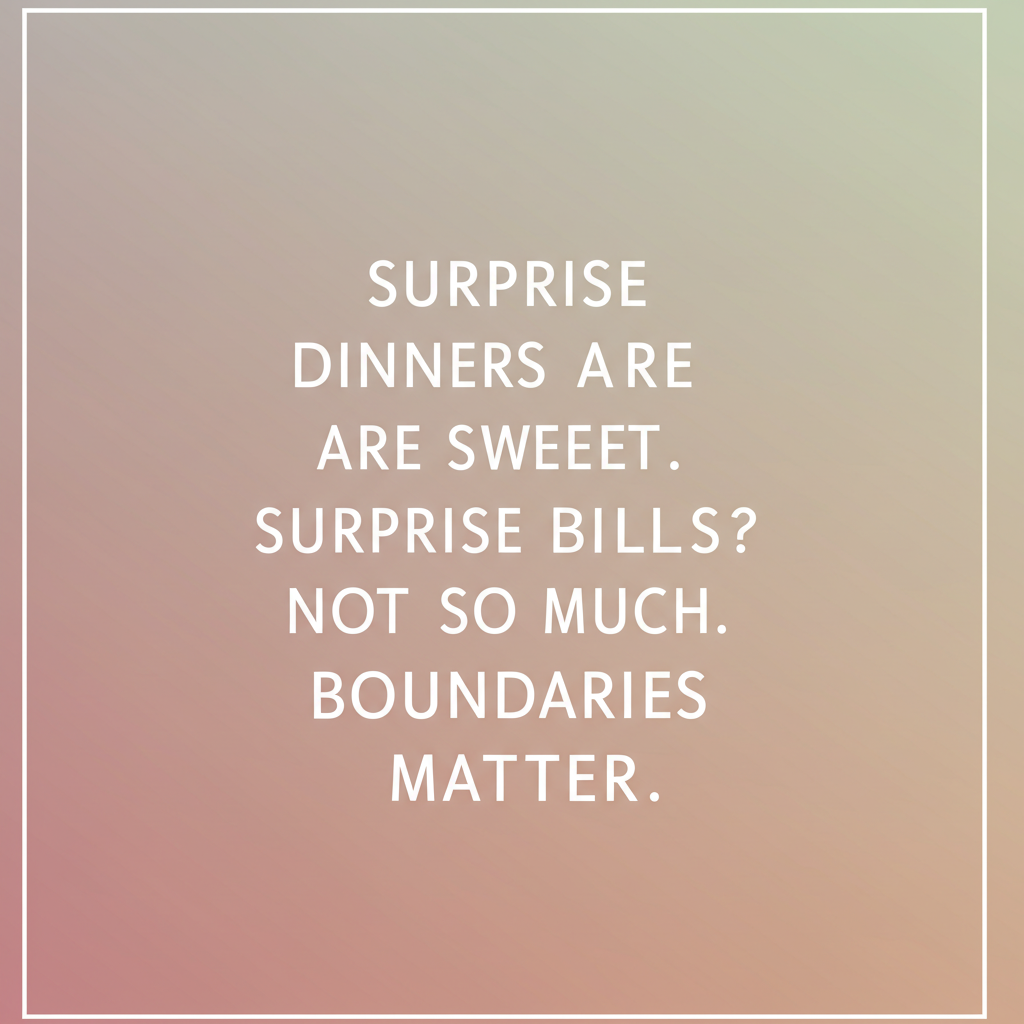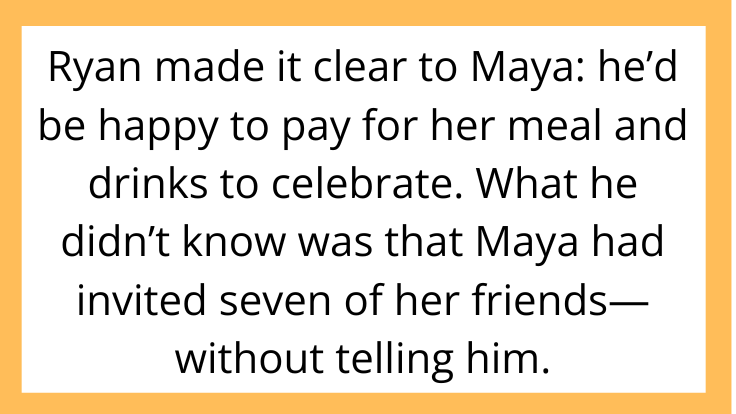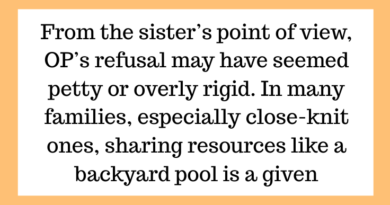AITAH for Refusing to Pay for My Girlfriend’s Friends at Her Birthday Dinner?
It was supposed to be a fun, celebratory night. I made a reservation, picked up the bill—at least, that’s what I thought. Instead, I walked away from my girlfriend’s birthday dinner feeling used, humiliated, and unsure if I was even in the wrong.
This post, originally shared on r/AITAH, sparked a heated online debate that touches on finances, expectations in relationships, and the uncomfortable question: When does generosity become exploitation?
The Situation: Birthday Surprise or Financial Setup?

The original poster (let’s call him Ryan) had been dating his girlfriend, Maya, for about 10 months. Maya’s 26th birthday was coming up, and Ryan wanted to do something special. He booked a table at a trendy restaurant in the city, one known for its upscale atmosphere and high-end menu.
Ryan made it clear to Maya: he’d be happy to pay for her meal and drinks to celebrate. What he didn’t know was that Maya had invited seven of her friends—without telling him.
When the bill came, it totaled over $700. Maya slid the bill over to Ryan without a word, assuming he would take care of it. But he didn’t.
Instead, he paid for himself and Maya, left a generous tip, and quietly said he wouldn’t be covering everyone else.
What followed was awkward silence, followed by one of Maya’s friends saying, “Wow…seriously?”
The Fallout: Public Scene, Private Blame

After the dinner, Maya confronted Ryan.
She said he embarrassed her in front of her friends. She accused him of being cheap, inconsiderate, and ruining the evening. According to Maya, “any decent boyfriend” would’ve paid for the group, especially since it was her birthday.
Ryan was stunned. He explained he had no idea so many people were invited. He never agreed to host a group dinner, and if he had, he would’ve chosen a different place or set a budget.
Still, Maya insisted he crossed a line—and now she was giving him the cold shoulder.
He turned to Reddit to ask: AITAH for refusing to pay for her friends?
The Debate: Generosity or Manipulation?

Why Ryan Might Not Be the Villain
-
Clear Expectations: Ryan was upfront about paying for Maya—not an entire party.
-
No Communication: Maya didn’t mention inviting friends until they were already at the table.
-
No Consent to Host: Inviting others without the person footing the bill agreeing first? That’s not just inconsiderate—it’s manipulative.
-
Financial Pressure: Not everyone has $700+ to casually spend on dinner. Generosity should be voluntary, not demanded.
Most Reddit users agreed with Ryan. The consensus was loud and clear: NTA (Not The Ahole).**
“You were blindsided. That’s not love, that’s entitlement,” wrote one top commenter.
“She made you the host of a party you didn’t plan or agree to pay for,” another said.
Why Some Might See It Differently
A smaller group of Redditors saw Maya’s side.
They argued that:
-
Social Expectations: In some circles, it’s expected that the partner covers the birthday dinner, guests and all.
-
Lack of Flexibility: Some said Ryan should’ve just paid to avoid the scene, then dealt with the conflict privately.
-
Intentions: Maybe Maya genuinely thought he wouldn’t mind, and misread the situation.
Still, even those sympathetic to Maya admitted she should’ve communicated beforehand—and that blindsiding someone with a big bill isn’t okay in any relationship.
Financial Boundaries in Relationships: Why They Matter

This story hits a nerve because it exposes an uncomfortable truth: money in relationships is emotional.
Here’s what this situation teaches us about financial expectations:
-
Boundaries Must Be Respected: If someone says they’ll pay for one thing, you can’t silently upgrade their responsibility.
-
Surprise Bills Are Not Romantic: No one likes feeling trapped, especially financially.
-
Communication is Key: A five-minute conversation could’ve avoided a very public mess.
What Should Ryan Do Now?

If you’re Ryan, you’re probably asking: where do I go from here?
Here’s what matters:
-
Stick to Your Boundaries: You didn’t agree to host. You’re allowed to say no—even if it’s awkward.
-
Reassess the Relationship: If your partner sees your value based on your wallet, that’s a red flag.
-
Have the Conversation: If there’s still room to talk, clarify expectations moving forward.
The Verdict: Not the Villain—Just a Man with Standards

So, was Ryan the villain here? Not according to the internet.
This AITAH story is a powerful reminder that you don’t owe anyone a blank check—no matter how much you love them. It’s okay to set limits. In fact, it’s necessary.
Boundaries don’t make you cheap. They make you self-respecting.



